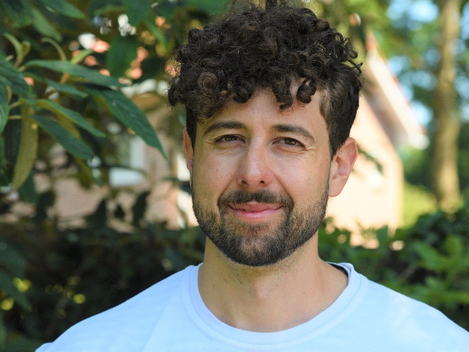 Photo © Juan Carlos Escobar Campos
Photo © Juan Carlos Escobar Campos
Juan Carlos Escobar Campos
PhD candidate at mdw and graduated sociologist from the Research Master in Social Sciences at the University of Amsterdam, specialized in Cultural Sociology. As a sociologist, I have always been passionate for studying the role of music in society. In Colombia, where I completed my bachelor’s in Sociology, I first explored the topic of music by doing ethnographic fieldwork with communities that use Cumbia and other Afro-Colombian music traditions to overcome the damages of war and violence. Once in Amsterdam, I gained experience in the use of quantitative research methods by working as intern with Dr. Alex van Venrooij and studying the network dynamics of Electronic Dance Music. In 2019, I started working with the Royal Concertgebouw Orchestra in a project that seeks to bring diversity to the orchestra by giving access to classic music education to young musicians from diverse backgrounds. Similarly, in 2019 and 2020 I taught at the Erasmus University of Rotterdam in the department of Arts and Culture. Personally, I do not only enjoy researching about music but also enjoy discovering and experiencing music from different cultural contexts, as well as by playing the piano and percussion instruments.
+43 1 71155 - 2045
The Symphony Orchestra Musician: Social Constraints and Careers of Success
Contemporary symphony orchestras face a current challenge common to the cultural world: the fact that music careers and paths to musical success are highly influenced by non-musical factors —such as access to top-level education, social networks, parent support, cultural capital, among others,— shows that social inequalities are also present in the field of classical music, impeding the talent development of young musicians that might not have the same opportunities as other music students. To make the world of classical music more accessible, to increase its diversity of musicians and audiences and to work harder towards the field’s excellence, these social inequalities need to be addressed. This research will try to understand the conditions that constraint talent development in classical music by studying and analyzing the careers and trajectories of musicians that have managed to acquire a permanent position in a symphonic orchestra. I am particularly interested in the ways in which musicians from less privileged environments managed to overcome such social constraints. Finally, I would like to analyze how these trajectories are related to other factors such as gender, nationality and ethnicity.